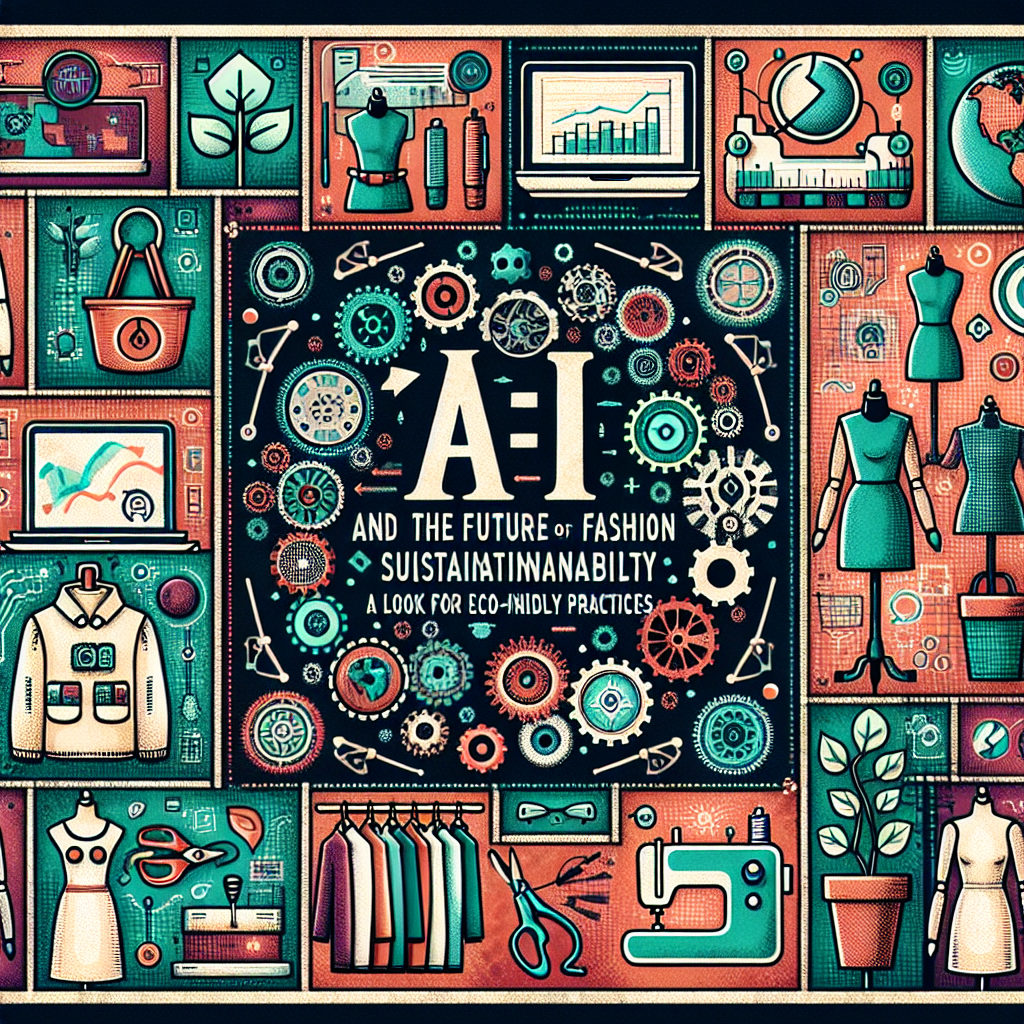The fashion industry is one of the largest contributors to environmental pollution and waste. From the production of textiles to the transportation of goods, every step in the fashion supply chain has a significant impact on the environment. As consumers become more aware of the environmental consequences of fast fashion, there is a growing demand for sustainable and eco-friendly fashion practices.
Artificial intelligence (AI) is playing a crucial role in the future of fashion sustainability. By leveraging AI technology, fashion brands can improve their supply chain management, reduce waste, and create more environmentally friendly products. In this article, we will explore how AI is transforming the fashion industry and driving sustainability initiatives.
AI and Sustainable Fashion Practices
AI technology is revolutionizing the way fashion brands operate and produce their products. By analyzing large sets of data, AI algorithms can help brands optimize their supply chain, reduce waste, and make more sustainable decisions. Here are some ways in which AI is being used to promote sustainability in the fashion industry:
1. Sustainable Material Sourcing: One of the key ways in which fashion brands can reduce their environmental impact is by using sustainable materials in their products. AI can help brands identify and source eco-friendly materials by analyzing data on the environmental impact of different materials, as well as their availability and cost. By using AI-powered tools, brands can make informed decisions about the materials they use in their products, leading to a more sustainable supply chain.
2. Waste Reduction: The fashion industry generates a significant amount of waste, from unused fabric scraps to unsold inventory. AI can help brands reduce waste by optimizing their production processes and predicting consumer demand more accurately. By using AI algorithms to analyze sales data and consumer trends, brands can produce the right amount of products at the right time, reducing the amount of unsold inventory that ends up in landfills.
3. Supply Chain Optimization: AI can also help fashion brands optimize their supply chain to reduce their environmental impact. By analyzing data on transportation routes, energy consumption, and production processes, AI algorithms can identify areas where brands can reduce their carbon footprint and operate more sustainably. By using AI technology, brands can make their supply chain more efficient and environmentally friendly.
4. Personalized Products: AI technology can also help fashion brands create personalized products for their customers, reducing the need for mass production and excess inventory. By analyzing customer data and preferences, AI algorithms can generate personalized product recommendations and designs, leading to a more sustainable and customer-centric approach to fashion.
FAQs
Q: How is AI being used in sustainable fashion practices?
A: AI is being used in sustainable fashion practices in various ways, such as material sourcing, waste reduction, supply chain optimization, and personalized products. By leveraging AI technology, fashion brands can make more informed decisions about their production processes, reduce waste, and create more environmentally friendly products.
Q: Can AI help fashion brands reduce their carbon footprint?
A: Yes, AI can help fashion brands reduce their carbon footprint by optimizing their supply chain, reducing waste, and using sustainable materials. By analyzing data on production processes, transportation routes, and energy consumption, AI algorithms can help brands identify areas where they can reduce their environmental impact and operate more sustainably.
Q: How can consumers support sustainable fashion practices?
A: Consumers can support sustainable fashion practices by choosing brands that prioritize sustainability, buying fewer but higher quality products, and recycling or upcycling old clothing. By making conscious purchasing decisions and supporting brands that are committed to sustainability, consumers can help drive positive change in the fashion industry.
In conclusion, AI is playing a critical role in the future of fashion sustainability by helping brands optimize their supply chain, reduce waste, and create more environmentally friendly products. By leveraging AI technology, fashion brands can make more informed decisions about their production processes and materials, leading to a more sustainable and eco-friendly industry. As consumers become more aware of the environmental consequences of fast fashion, there is a growing demand for sustainable fashion practices, and AI is poised to play a key role in driving this change.

